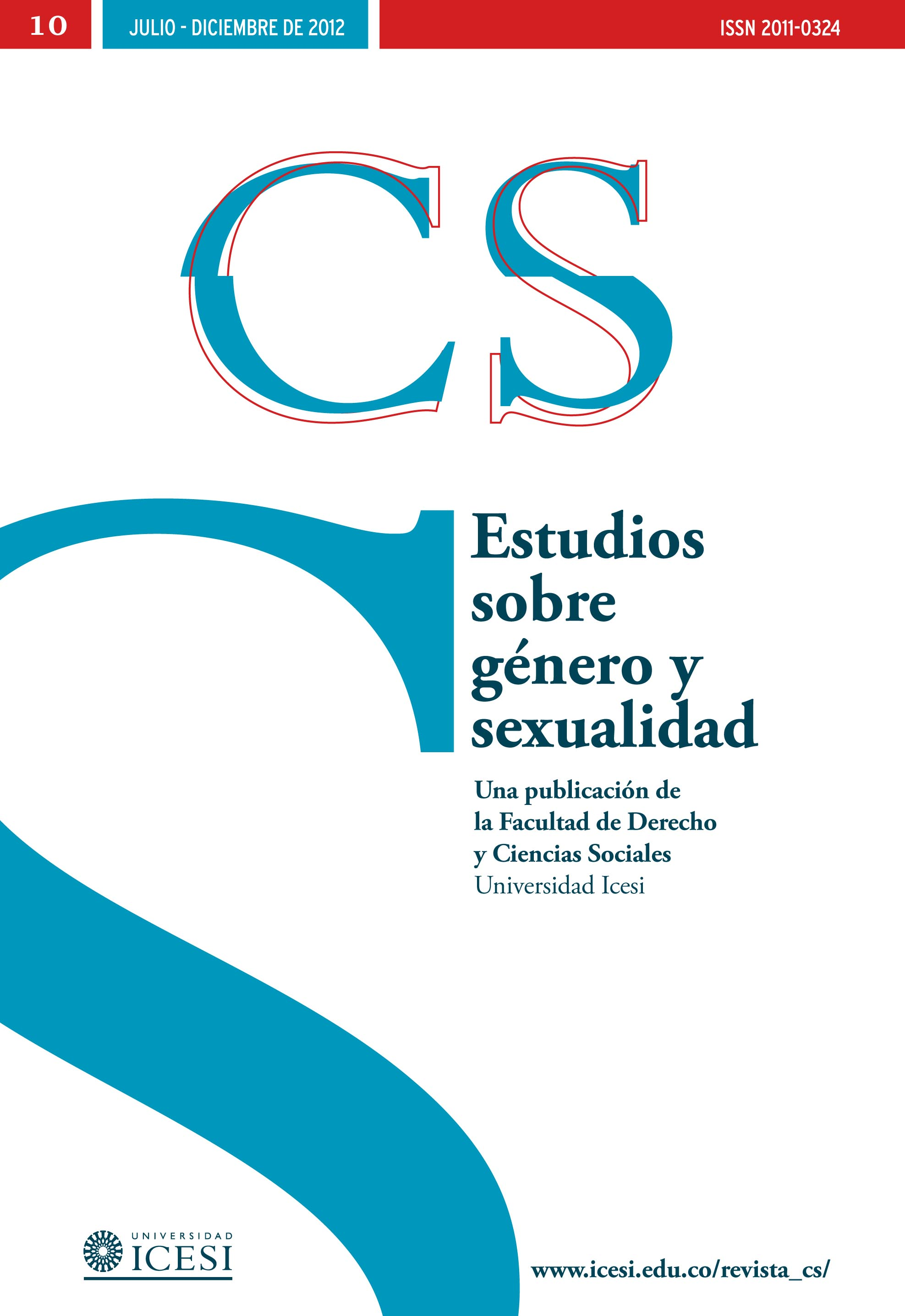Gender, Work, and Identity: Beauty Salons in Bogotá
DOI:
https://doi.org/10.18046/recs.i10.1356Keywords:
Gender, Intersectionality, Work, Beauty, Hair salonsAbstract
This article examines hair salons, beauty parlors and barbershops in Bogotá from threeperspectives; first, as a space that offers a variety of services and aesthetic possibilities ina context of high informality and of class, race, and gender inequality; secondly, as workmarked by sexual and social divisions, in terms of both jobs and attention to the clientele,centered around “emotional work”; and thirdly, as a field of both cultural expressionand conflict with ethnic, racial and sexual aspects. Based on fieldwork and on a focus onintersectionality, the article explores these social differences as manifested in these jobswithin the processes of subsistence and professionalization.Downloads
References
Arango, L. G. (2011a). Género, trabajo emocional y corporal en peluquerías y salones de belleza. Manzana de la discordia, 6, (1), 9–24.
Arango, L. G. (2011b), Género, belleza y pretensiones artísticas en el campo de las peluquerías. Revista Latina de Sociología, 1, 1–44.
Arango, L. G. (2011c). El trabajo de cuidado: ¿servidumbre, profesión o ingeniería emocional? En L. G. Arango y P. Molinier (Eds.), El Trabajo y la Ética del Cuidado, (91– 109). Medellín, Colombia: La Carreta Editores & Universidad Nacional de Colombia.
Arango, L. G., Bello, J. y Ramírez, S. A. (2012). Género, belleza y apariencia: la clientela de peluquerías en Bogotá. Artículo en proceso de evaluación.
Barrig, M. (2001). El mundo al revés: imágenes de la Mujer Indígena. Buenos Aires, Argentina: CLACSO.
Black, P. (2004). The Beauty Industry: Gender, Culture, Pleasure. Abingdon, Inglaterra: Routledge.
Bourdieu, P. (1979). La Distinction. Paris, Francia: Editions de Minuit.
Bourdieu, P. (1987). Los tres estados del capital cultural. Sociológica. 2 (5), 11–23.
Bourdieu, P. (1998). La Domination Masculine. Paris, Francia: Seuil.
Bourdieu, P. Y Wacquant, L. (1995). Respuestas. Por una antropología reflexiva. México: Grijalbo.
Connell, R. W, (1995). Masculinities. Los Angeles, EE.UU.: University of California Press.
Daune–Richard, A. (1998). Qualifications et représentations sociales. En Maruani M. (Ed.), Les nouvelles frontières de l'inégalité. Hommes et femmes sur le marché du travail (pp. 47–58). Paris, Francia: La Découverte.
Gasparini, L. y Tornarolli, L. (2009). Labor informality in Latin America and Caribbean: patterns and trends from household survey microdata. Desarrollo y Sociedad, 63, 13–80.
Gimlin, D. (2002). Body Work: Beauty and Self–Image in American Culture. Los Angeles, EE.UU.: University of California Press.
Glenn, E. N. (2004). Unequal Freedom: How Race and Gender Shaped American Citizenship and Labor. EE.UU.: Harvard University Press.
Glenn, E. N. (2009). Le travail forcé: citoyenneté, obligation statutaire et assignation des femmes au care. En P. Molinier,., Laugier S & P. Paperman (Eds) ¿Qu'est–ce que le care? Paris, Francia: Payot.
Hill, P. C., (2000). Black Feminist Thought. New York, EE.UU.: Routledge.
Hochschild, A. R. (1983). The Managed Heart: Commercialization of Human Feeling. Los Angeles, EE.UU.: University of California Press.
Jacobs–Huey, L. (2006). From the Kitchen to the Parlor: Language and Becoming in African American Women's Hair Care. New York, EE.UU.: Oxford University Press.
Jones, G. (2010). Beauty imagined: a history of the global beauty industry. New York, EE.UU.: Oxford University Press.
Kang, M. (2010). The Managed Hand: Race, Gender, and the Body in Beauty Service Work. Los Angeles, EE.UU.:University of California Press.
Klein, E. y Tokman, V. (1988). Sector informal: una forma de utilizar el trabajo como consecuencia de la manera de producir y no viceversa. Estudios Sociológicos, 6, (16), 205–212.
Lipovetsky, G. (1997). La troisième femme. Permanence et révolution du féminin. Paris, Francia : Gallimard.
Maloney, W. (1998). The Structure of Labor Markets in Developing Countries: Time Series Evidence on Competing Views. The World Bank Policy Research Department, 1940, recuperado de http://ssrn.com/abstract=597229
Pedraza, Z. (1999). En cuerpo y alma. Visiones del progreso y la felicidad. Bogotá, Colombia: Universidad de los Andes.
Perry, G. E., Arias, O.S., Fajnzylber, P., Maloney, W.F., Mason, A.D., Saavedra Chanduvi, J. (2007). Informalidad: escape y exclusión. Washington, EE.UU.: Banco Mundial.
Pineda, J. (2008). Informalidad y calidad de empleo. En Vías y escenarios de la transformación laboral: aproximaciones teóricas y nuevos problemas (pp. 281–306). Bogotá, Colombia: Universidad del Rosario.
Portes, A., Castells, M. y Lauren Benton (1989). The policy implications of informality. En A. Portes, M. Castells y L. Benton (Eds.), The informal economy: studies in advanced and less developed countries. Baltimore, EE.UU.: John Hopkins University Press.
Portes, A. y Haller, W. (2004). La economía informal. Serie de políticas sociales, 100. Comisión Económica para América Latina y el Caribe.
Rubio, S. P. (2003). Mujer, inmigrante y trabajadora: la triple discriminación. Barcelona, España: Anthropos.
Sassen, S. (2004). Global Cities and Survival Circuits. En B. Ehrenreich y A. R. Hoschschild (Eds.), Global Woman. Nannies, maids, and sex workers in the new economy. New York, EE.UU.: Owl Books,.
Scott, J. W. (1993). La mujer trabajadora en el siglo XIX. En G. Duby y M. Perrot (Eds.), Historia de las Mujeres, El Siglo XIX: cuerpo, trabajo y modernidad. Madrid, España: Taurus.
Sullerot, E. (1968). Histoire et sociologie du travail féminin. Paris, Francia: Gonthier. Tokman, V. (2007). Informalidad, inseguridad y cohesión social en América Latina. Políticas Sociales, 60. Comisión Económica para América Latina y el Caribe.
Downloads
Published
Issue
Section
License
Copyright (c) 2012 Luz Gabriela Arango Gaviria, Javier Armando Pineda Duque

This work is licensed under a Creative Commons Attribution-NonCommercial 4.0 International License.
© Reserved Copyright
Material in this publication may be reproduced without authorization, provided the title, author and institutional source is acknowledged.
The content published in Revista CS is distributed under the Creative Commons BY-NC 4.0 Attribution/Recognition-NonCommercial 4.0 International license.
You are free to:
Share — copy and redistribute the material in any medium or format.
Adapt — remix, transform, and build upon the material.
Under the following terms:
Attribution — You must give appropriate credit , provide a link to the license, and indicate if changes were made . You may do so in any reasonable manner, but not in any way that suggests the licensor endorses you or your use.
NonCommercial — You may not use the material for commercial purposes.












